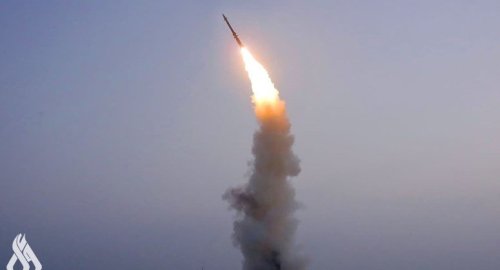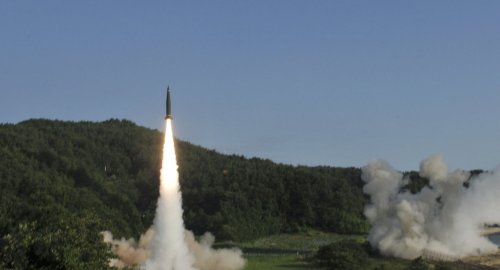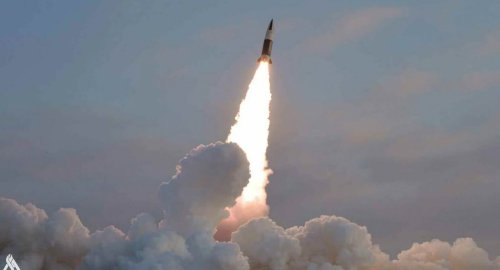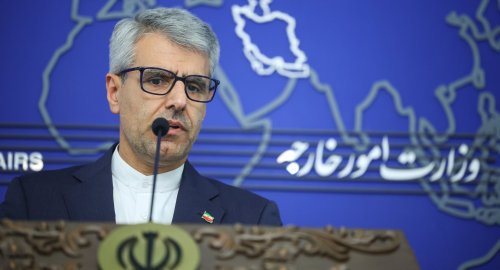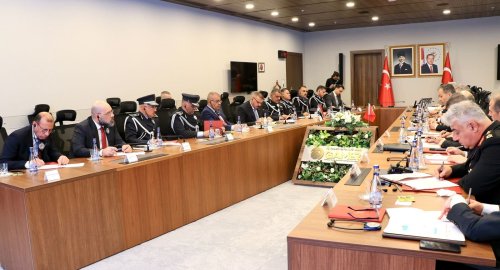
S. Korea, US begin combined naval exercise involving Ronald Reagan aircraft carrier

- 26-09-2022, 08:07
INA-source
South Korea and the United States kicked off their first combined naval exercise, involving an American aircraft carrier, near the peninsula in five years Monday, a day after North Korea raised tensions with a short-range ballistic missile launch.
The four-day exercise got under way in the East Sea with the presence of the nuclear-powered USS Ronald Reagan carrier to demonstrate the "strong will" of the South Korea-US alliance and hone their military capabilities for combined operations, Navy officials here said.
The drills came as Seoul and Washington are cranking up security cooperation amid continued speculation that Pyongyang could engage in provocative acts, like a nuclear test or submarine-launched ballistic missile (SLBM) launch.
For the exercise, the allies' Navies mobilized more than 20 vessels, including the carrier and key South Korean warships, such as the 7,600-ton Aegis destroyer Seoae Ryu Sung-ryong and the 4,400-ton Munmu the Great destroyer.
The nuclear-powered USS Annapolis submarine also took part, paving the way for the allies to conduct rare drills to detect and track the underwater warship -- in an apparent move to counter threats from the North's push to deploy SLBMs.
Aside from maritime assets, the allies also deployed an assortment of aircraft, including F/A-18E Super Hornets, P-3 and P-8 maritime surveillance aircraft, F-15K and KF-16 fighter jets, and AH-64E Apache helicopters.
"Through the training this time, we will further improve capabilities for the Navies' combined operations and maintain a firm maritime defense posture based on the solid South Korea-US alliance," a senior South Korean official was quoted as saying in a press release.
The exercise involves various drills on anti-ship and anti-submarine warfare operations, tactical maneuvers and other maritime combat operations.
The Ronald Reagan carrier strike group arrived at the ROK Fleet Command in Busan, 325 kilometers south of Seoul, on Friday to join the combined exercise. ROK stands for the Republic of Korea, South Korea's official name.
The arrival of the carrier, a centerpiece of America's naval might, came after Presidents Yoon Suk-yeol and Joe Biden reaffirmed their commitment to deploy US strategic assets in a "timely and coordinated manner as necessary" during their summit in Seoul in May.
Its carrier strike group consists of three vessels -- the Nimitz-class carrier; the USS Chancellorsville, a Ticonderoga-class guided-missile cruiser; and the USS Barry, an Arleigh Burke-class guided missile destroyer.
Source-The koreaherald
3 martyrs and 11 wounded as a result of the Zionist aggression on Yemen
- International
- 07:46
Iran: Allegations of Tehran's Interference in Syrian Affairs Are False
- International
- 06:41
A new Zionist aggression on the Yemeni capital Sana'a
- International
- 06:39
US Central Command: We killed ISIS terrorist leader Abu Yusuf in Syria
- International
- 24/12/20
7 ISIS elements arrested in Kirkuk
- Security
- 24/12/20
